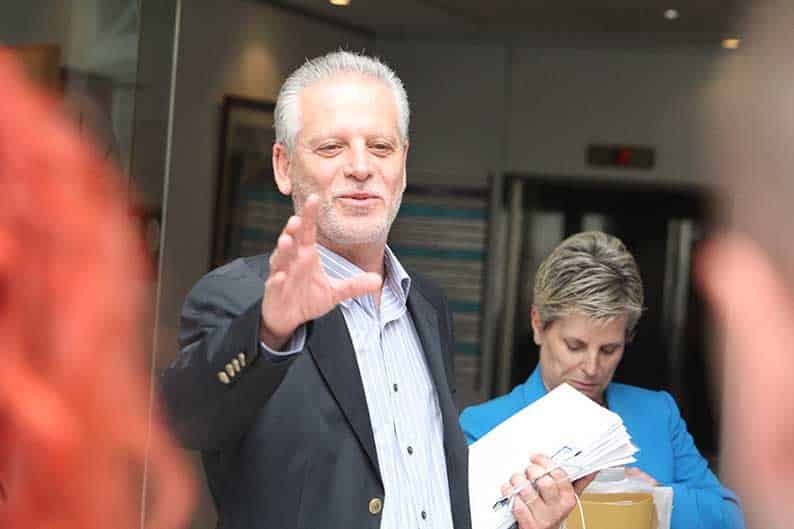Marinos Sizopoulos took everyone by surprise last week when he announced his plan to step down as leader of Edek at the party’s next conference in June. He explained that he was giving up the leadership, having completed 10 years at the helm, in accordance with the party’s charter. It would have been wrong for him to ignore this provision which he had proposed, he said. This decision would allow his successor to lead the party in next year’s parliamentary elections.
Sizopoulos should have probably stepped down even if there were no provision setting a 10-year limit because his leadership was not exactly a big success. Under his stewardship the party’s electoral strength declined, many long-time members departed while he fell out with one of his deputies who quit Edek. He also expelled the Edek MEP Yiannis Papadakis in 2020, after a vicious public row, in which the police also became involved; a dozen members of party organs, including the central committee, walked out in protest against Sizopoulos’ heavy-handedness. One of the departed members said at the time “the leadership divides and manipulates members, leading the party into introversion and a culture of back-stabbing.”
Instead of taking the party forward and establishing a political discourse in tune with the changing times and EU membership, Sizopoulos appeared to have turned Edek into an ultra-nationalist party with a harder-line on the Cyprus problem than previously. In the end it was competing for votes, not with left-wing Akel or centre-right Diko, but with the far-right nationalists of Elam. Edek could hardly be described as ‘socialist’ or ‘social democratic’ party any longer, having no positions on the economy, relying on its anti-settlement rhetoric and making migration, like Elam, its key concern. It had no fresh ideas, no vision about the future of the country and its positions were those of its leader.
Sizopoulos also championed Russian interests in Cyprus, calling on the government to grant military facilities to Moscow because of its allegedly principled stand on the Cyprus problem. This was another example of his lack of political judgement – did he really believe that Moscow was so principled it had to be rewarded with military facilities that would have caused huge problems for Cyprus in the EU. A doctor by profession, Sizopoulos was never fully committed to politics, and it shows – the mess he will leave Edek in when he goes is indicative of his short-sighted and divisive leadership.
Perhaps the new leader will give Edek a new direction, turning it into a true social democratic party which could attract the younger voters. The party should give up the ultra-nationalism that Sizopoulos embraced, because that section of the votes market has been taken over by Elam.






Click here to change your cookie preferences